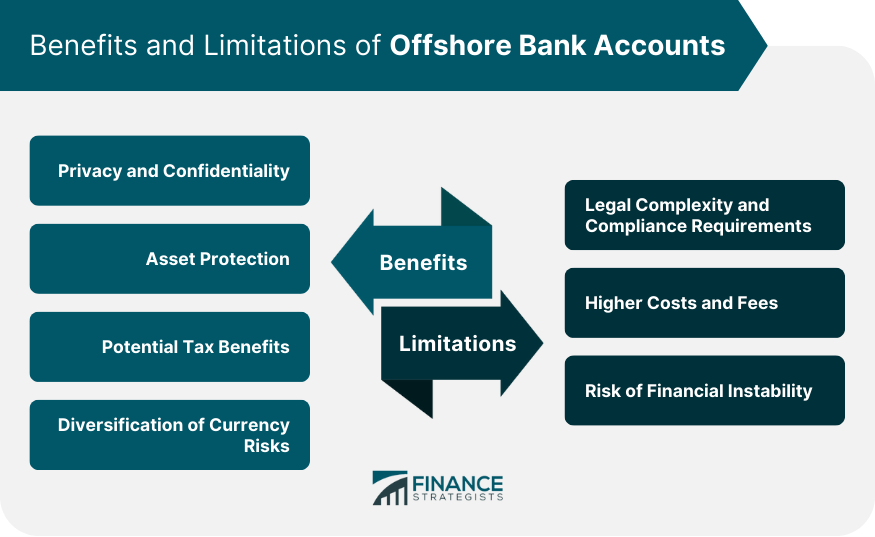Discovering the Providers Offered in Offshore Business Formations: What You Need to Know
Offshore firm formations provide a series of services created to assist in service success while ensuring compliance with legal requirements. These services can include company registration, legal recommendations, and setups for personal privacy through candidate supervisors. Furthermore, factors to consider around tax optimization and possession security are crucial. Understanding these elements can greatly affect one's decision-making process. The complexities of picking the best jurisdiction and guiding via guidelines elevate better questions. What should one consider next?
Comprehending Offshore Company Frameworks
What defines an overseas business structure? An offshore firm is usually signed up in a foreign territory, commonly identified by favorable regulatory environments and discretion. These structures are designed to give lawful splitting up between the business's assets and its owners, making it possible for a range of functional and economic advantages. Offshore business can be established as various kinds, including limited responsibility firms (LLCs), corporations, or trusts, depending upon the regulatory structure of the chosen territory.
Trick functions of these structures include boosted privacy, property defense, and simplicity of worldwide service transactions. Additionally, they usually need minimal local presence and can promote the monitoring of investments across borders. The option of a details overseas jurisdiction can greatly affect the operational capabilities and compliance requirements of the firm. On the whole, understanding the intricacies of offshore company structures is vital for investors and entrepreneurs looking for to maximize their service approaches.
Tax Benefits of Offshore Business
Offshore companies use significant tax obligation benefits that can improve earnings and financial efficiency for company owner. One of the primary benefits is the possibility for minimized company tax obligation prices, which can be notably less than those in the owner's home nation. Several overseas territories give tax incentives, such as tax obligation holidays or exemptions on particular kinds of income. In addition, overseas companies may take advantage of beneficial tax obligation treaties, enabling the decrease or removal of withholding tax obligations on dividends, nobilities, and interest. This can result in boosted capital and much better reinvestment possibilities. Furthermore, some overseas entities can run under a territorial tax obligation system, which just tax obligations earnings generated within that territory. This structure can be especially beneficial for companies participated in global profession or online solutions, allowing them to optimize their tax commitments while keeping conformity with international regulations. Overall, these tax obligation advantages can greatly add to lasting financial success.
Personal Privacy and Confidentiality Features
Just how can business proprietors protect their sensitive details while taking advantage of international chances? Offshore firm formations offer robust personal privacy and discretion functions that interest entrepreneurs seeking discernment (Offshore Company Formations). Several jurisdictions provide candidate services, enabling people to select 3rd parties as supervisors or shareholders, thus hiding their identifications from public documents
Furthermore, strict data security laws in countless offshore territories assure that delicate information stays personal. Offshore firms frequently profit from enhanced financial privacy, with guidelines that safeguard customer identifications and financial deals.
Additionally, using personal addresses for registered offices minimizes direct exposure to public examination.
These personal privacy actions enable local business owner to run with better confidence, understanding their delicate data is safe and secure. By leveraging these functions, entrepreneurs can focus on calculated growth opportunities without the continuous problem of info exposure.
Property Protection Approaches
While steering with the complexities of international organization, entrepreneurs have to focus on possession protection to protect their wealth from potential dangers. Offshore firm formations provide durable techniques for minimizing exposure to legal cases, financial institution activities, and political instability. One effective approach involves establishing a minimal liability company (LLC), which divides personal properties from company responsibilities, thus providing a shield against legal actions.
Furthermore, business owners can use depend hold possessions, guaranteeing they remain shielded from creditors and legal conflicts. Territories with solid possession defense legislations, such as Nevis or the Cook Islands, are commonly preferred for their desirable laws. Executing appropriate insurance plan and diversifying investments even more boosts protection, decreasing vulnerability to market changes. Generally, making use of these techniques within an overseas structure not only promotes wide range conservation however also fosters long-term economic stability, permitting business owners to concentrate on development and technology navigate to these guys without excessive issue over asset exposure.

Opening Offshore Bank Accounts
Opening up overseas bank accounts entails comprehending the different account types offered, which can provide to various financial demands. In addition, the paperwork process is crucial, as it commonly calls for certain kinds of recognition and evidence of house. This introduction will certainly make clear the options and needs for people and companies looking for to establish overseas banking relationships.
Account Kind Supplied
Offshore savings account can be found in various kinds, each made to cater to different monetary requirements and goals. Personal accounts are customized for individuals looking for personal privacy and possession defense, while corporate accounts facilitate company deals and administration of company funds. Multi-currency accounts are popular amongst global financiers, enabling for transactions throughout various currencies without too much conversion fees. In addition, financial savings accounts offer interest on deposits, appealing to those wanting to grow their possessions safely. Some financial institutions likewise give financial investment accounts, providing clients accessibility to numerous financial investment chances. Each account type may include distinctive advantages and attributes, permitting customers to pick the one that aligns ideal with their financial strategies and goals. Understanding these choices is essential for efficient overseas financial.
Required Documentation Refine
To efficiently open up an offshore savings account, possible customers must prepare a set of particular documents that satisfy additional hints regulative demands. This commonly consists of a legitimate copyright or government-issued recognition to validate identification. Customers are also needed to give evidence of residence, such as an utility costs or financial institution declaration, dated within the last 3 months. Furthermore, a thorough description of the resource of funds is needed to assure conformity with anti-money laundering policies. Some financial institutions might ask for a business plan or recommendation letters, specifically for business accounts. Each territory might have distinct requirements; consequently, seeking advice from with an expert in overseas services is recommended to ascertain all documents is full and accurate, helping with a smoother account opening process.
Compliance and Governing Factors To Consider
Steering the intricacies of conformity and regulatory considerations is necessary for any kind of entity seeking offshore business formations. Entities have to follow various international and local legislations that control economic activities, taxes, and business administration. Key laws typically consist of anti-money laundering (AML) legislations, recognize your client (KYC) methods, and coverage needs to ensure transparency.
Business have to stay cautious about changes in legislation that might affect their functional condition. Failing to abide can lead to severe fines, including penalties or the dissolution of the company. Involving with economic and legal experts that concentrate on overseas laws can provide critical support in steering with these ins and outs.
Additionally, understanding the ramifications of tax treaties and global agreements is basic for maintaining compliance. see Firms ought to prioritize establishing robust compliance structures to mitigate dangers and guarantee lasting sustainability in their overseas endeavors.
Selecting the Right Offshore Jurisdiction
How does one figure out the most suitable overseas jurisdiction for business development? The choice of jurisdiction is critical and involves a number of variables. Initially, one should evaluate the lawful framework and guidelines regulating firms in possible jurisdictions. Favorable tax regimens, such as low or no corporate taxes, are usually a primary consideration. In addition, the political security and track record of the jurisdiction play considerable roles in ensuring the security of properties and compliance with global criteria.
The accessibility of financial solutions and the convenience of doing company should not be forgotten. A jurisdiction offering robust confidentiality stipulations can additionally be helpful for those seeking personal privacy. Evaluating the expenses linked with company formation, maintenance, and possible lawful fees is vital. By evaluating these factors, one can make a notified decision, making sure that the picked offshore territory straightens with their company goals and functional requirements.

Regularly Asked Inquiries
For how long Does the Offshore Business Formation Process Commonly Take?

The offshore business development procedure normally takes anywhere from a couple of days to several weeks. Offshore Company Formations. Variables affecting this timeline consist of jurisdiction, paperwork efficiency, and details service carriers associated with the development process
What Are the Preliminary Costs Included in Establishing up an Offshore Business?
The preliminary prices for establishing up an offshore company can vary widely, generally encompassing registration charges, lawful costs, and added fees for solutions like checking account configuration and compliance, often totaling a number of hundred to numerous thousand dollars.
Can Individuals Form Offshore Companies Without Expert Aid?
People can technically create overseas business individually; nevertheless, they typically run into intricate legal and regulative needs. Offshore Company Formations. Professional assistance is advised to navigate these difficulties properly and guarantee compliance with relevant regulations and policies
What Papers Are Required for Offshore Firm Registration?
The papers required for overseas firm enrollment usually consist of recognition proof, a detailed company plan, proof of address, and, in some jurisdictions, a statement of helpful ownership and resolutions from directors.
Exist Ongoing Maintenance Charges for Offshore Business?
Continuous upkeep fees for overseas business are typically needed to assure conformity with local regulations. These charges may consist of yearly revival fees, registered agent services, and accounting, differing by territory and particular business structure.
